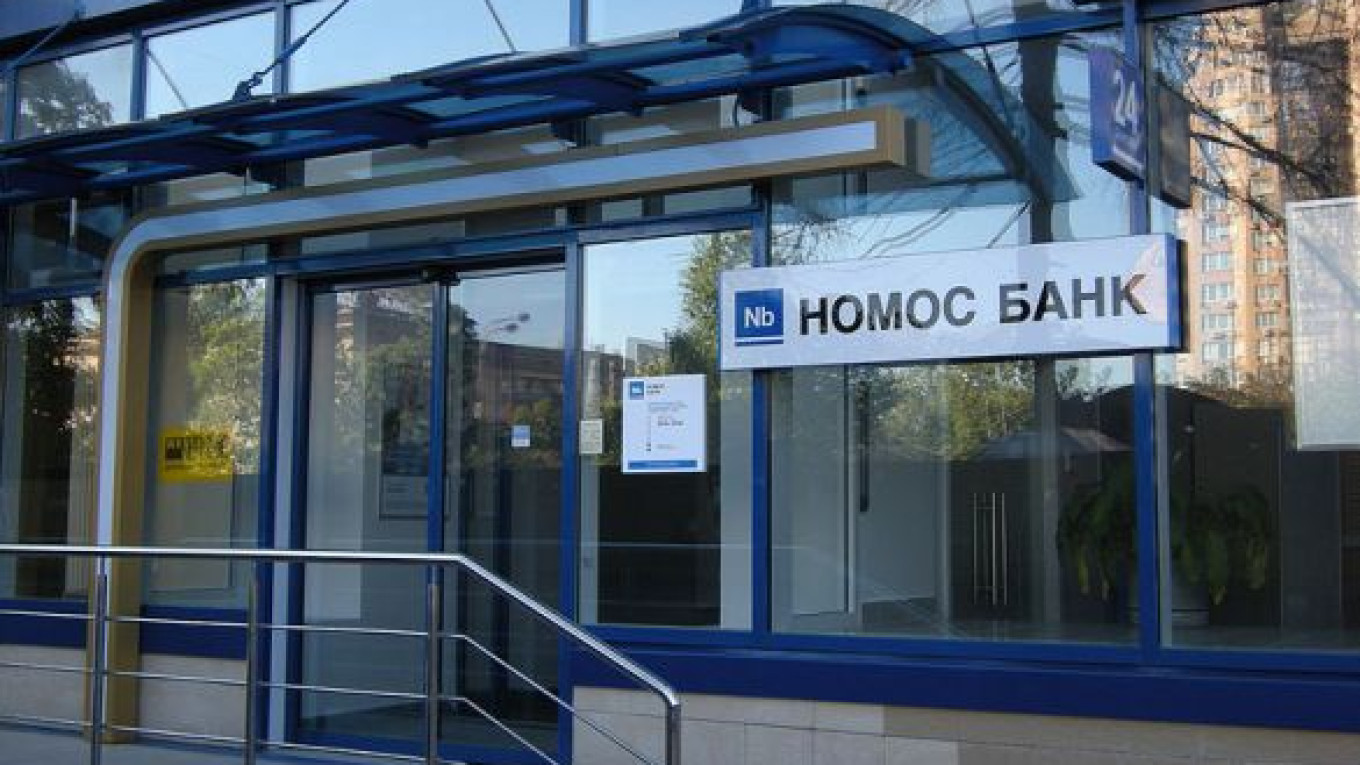The state will actively seek to promote consolidation within the country's banking sector, President Vladimir Putin said during the Asia-Pacific Economic Cooperation summit in Vladivostok.
While the banking market is dominated by state-owned giants Sberbank and VTB, there are almost 1,000 banks registered in Russia, a number that has stubbornly refused to fall with any rapidity despite frequent talk of consolidation in recent years.
"We are intending to further strengthen our financial system," Putin said Friday, RIA-Novosti reported. "We will consolidate the banks but we will not do it abruptly, we will not make excessive demands, we won't use forced takeovers, but we will strive to strengthen our financial institutions."
Putin's words came a week after official confirmation that middle-tier bank Otkritie Financial Corporation will take over its bigger competitor, privately held Nomos-Bank, which raised $700 million in one of the few successful Russian initial public offerings in London in recent years.
The role of VTB, which will finance up to $1 billion of the transaction, has raised eyebrows because of its track record of ambitious acquisitions. And market rumors have long spread about the real ownership structure of Otkritie.
Credit rating agency Fitch put Nomos-Bank on negative watch Friday, according to an e-mailed statement. In justifying the decision, it cited "possible negative implications for Nomos' corporate governance and, in particular, risk appetite of its delisting and sole ownership by Otkritie."
As of Aug.1, there were 965 active banks in Russia, according to the Central Bank. Almost 51 percent of the assets are held by the top five banks and over 70 percent by the top 20 banks. ?
Putin also defended the enormous bailouts that were given to the major state-owned banks during the 2008-2009 crisis, which allowed them to further strengthen their dominant market positions.
"We know very well that the financial system is the economy's circulatory system," he said. "Without it a normal, functioning economy would simply collapse."
Related articles:
A Message from The Moscow Times:
Dear readers,
We are facing unprecedented challenges. Russia's Prosecutor General's Office has designated The Moscow Times as an "undesirable" organization, criminalizing our work and putting our staff at risk of prosecution. This follows our earlier unjust labeling as a "foreign agent."
These actions are direct attempts to silence independent journalism in Russia. The authorities claim our work "discredits the decisions of the Russian leadership." We see things differently: we strive to provide accurate, unbiased reporting on Russia.
We, the journalists of The Moscow Times, refuse to be silenced. But to continue our work, we need your help.
Your support, no matter how small, makes a world of difference. If you can, please support us monthly starting from just $2. It's quick to set up, and every contribution makes a significant impact.
By supporting The Moscow Times, you're defending open, independent journalism in the face of repression. Thank you for standing with us.
Remind me later.


